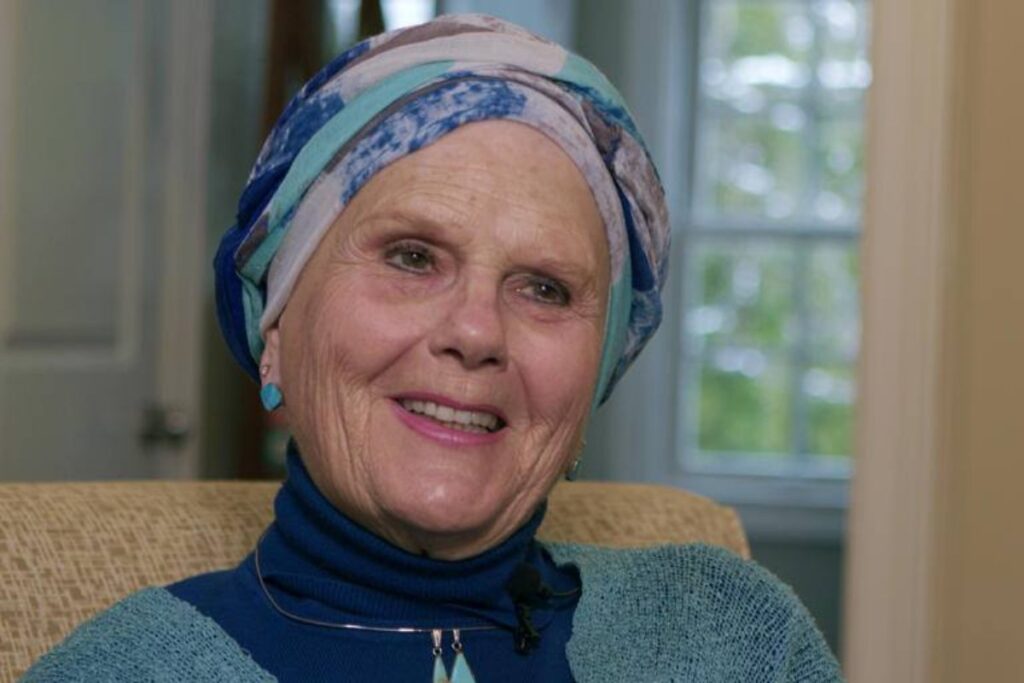
A Connecticut woman who was terminally ill died in Vermont in the way she wanted. Her husband described the event as “comfortable and peaceful.” Lynda Bluestein, a lifelong activist from Bridgeport, had terminal cancer. However, she did not wish to wait for the prolonged illness to take her life.
Instead, she spent years pushing for expanded access to a Vermont law that allows terminally ill people to end their lives via lethal medication. Surrounded by her family on Thursday, January 4, 2024, Bluestein ended her life by taking prescribed medication.
According to her husband, Paul, Bluestein’s last words were, “I’m so happy I don’t have to do this (suffer) anymore.” Bluestein revealed during a 2023 interview that her decision gave her power over her terminal illness. She also said she preferred to pass away surrounded by her husband, children, grandchildren, and friends.
She said she preferred that to waiting in a hospital bed for the cancer to take her at an unknown time and potentially alone. Before Bluestein’s death, Compassion & Choices filed a lawsuit against Vermont in 2022. The organization filed on behalf of Bluestein, Bridgeport, Connecticut, and Diana Barnard, a physician from Middlebury.
ALSO READ: Oregon Woman Facing Animal Abuse Charge for Dying Cat Pink To Put It Up for Adoption
The suit claimed Vermont’s residency requirement in its patient choice and control at end-of-life law violated the U.S. Constitution. It alleged the law violated the constitution’s commerce, equal protection, and privileges and immunities clauses.
Consequently, the state agreed to a settlement in March 2023. The settlement allowed Bluestein, who is not a Vermont resident, to use the law to die in Vermont. However, two months later, Vermont made such accommodations available to anyone in similar circumstances.
Therefore, Vermont became the first state in the country to change its law to allow terminally ill people from out of state to take advantage of the law to end their lives. Vermont’s law, which has been in effect since 2013, allows physicians to prescribe lethal medication to terminally ill people expected to die within six months.
POLL — Do You Support a Single-Payer Healthcare System (Medicare for All)?
Bluestein had advocated for New York and Connecticut to pass similar legislation. However, this has not happened. “Lynda was an advocate all the way through,” Barnard said. “She wanted access to this law, and she had it.” The physician added that “she and everybody deserve access much closer to home.”
In addition, Barnard noted the stress that comes with traveling to other states to get the lethal medication. “The need to travel and make arrangements around the scheduling to come to Vermont is not something we wish for people to have,” Barnard said.
Barnard said it was a sad day because her life had come to an end. However, she noted that Bluestein deciding her fate made it better. “But more than a silver lining is the beauty and the peace that came from Lynda having a say in what happened at the very end of her life.”
ALSO READ: Alaska Authorities Resume Search for Woman Who Disappeared Under Frozen River While Rescuing Dog
Ten states allow medically assisted suicide in the United States. However, before Vermont changed its law, only one state, Oregon, allowed non-residents access. Oregon removed the non-resident requirement last summer. This law is subject to controversy as critics express moral opposition to assisted suicide.
They say others can coerce vulnerable patients into requesting the procedure. However, supporters say the law has stringent safeguards. These include patients making multiple requests to a physician over time and having uninvolved witnesses.
You Might Also Like:
New Jersey Democrats Divided as New York’s Bus Restrictions Worsen Migrant Crisis
Biden Drags Texas to Supreme Court Over Rio Grande Razor Wire Barriers
Harvard Alum Bill Ackman Says School Board Should Resign Like Ex-President Claudine Gay
Federal Prosecutor’s Sentencing of Ray Epps Sparks Outrage Online
Los Angeles Zoo Euthanizes 53-Year-Old Ailing Elephant
